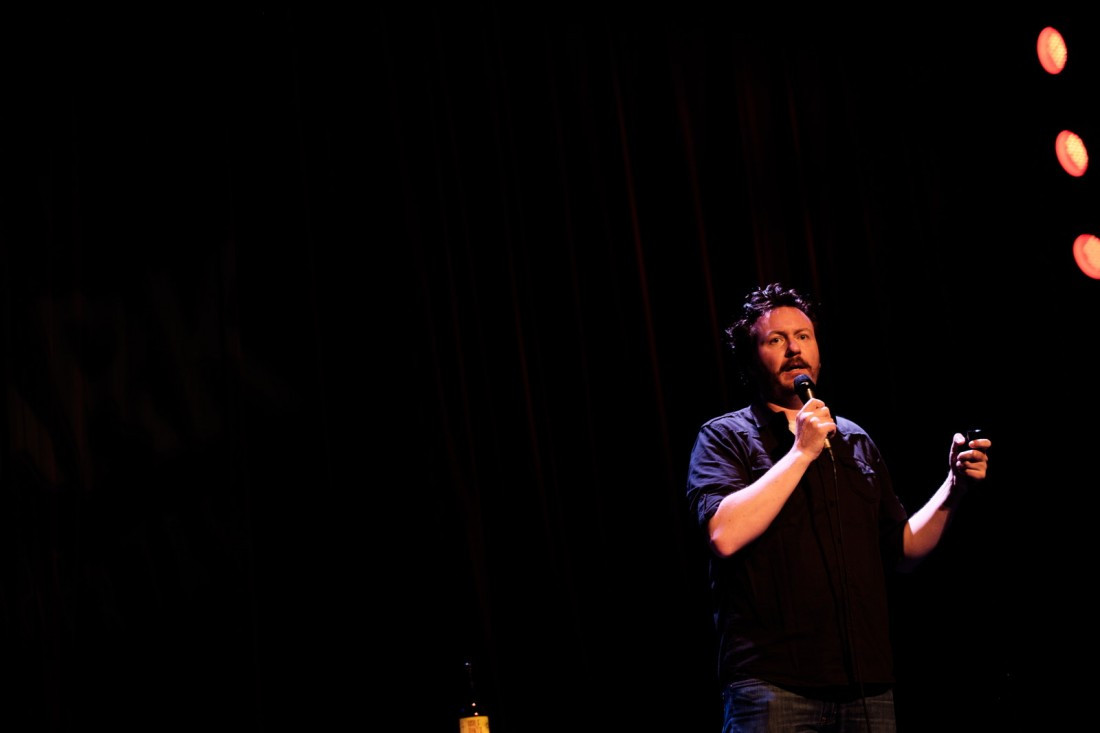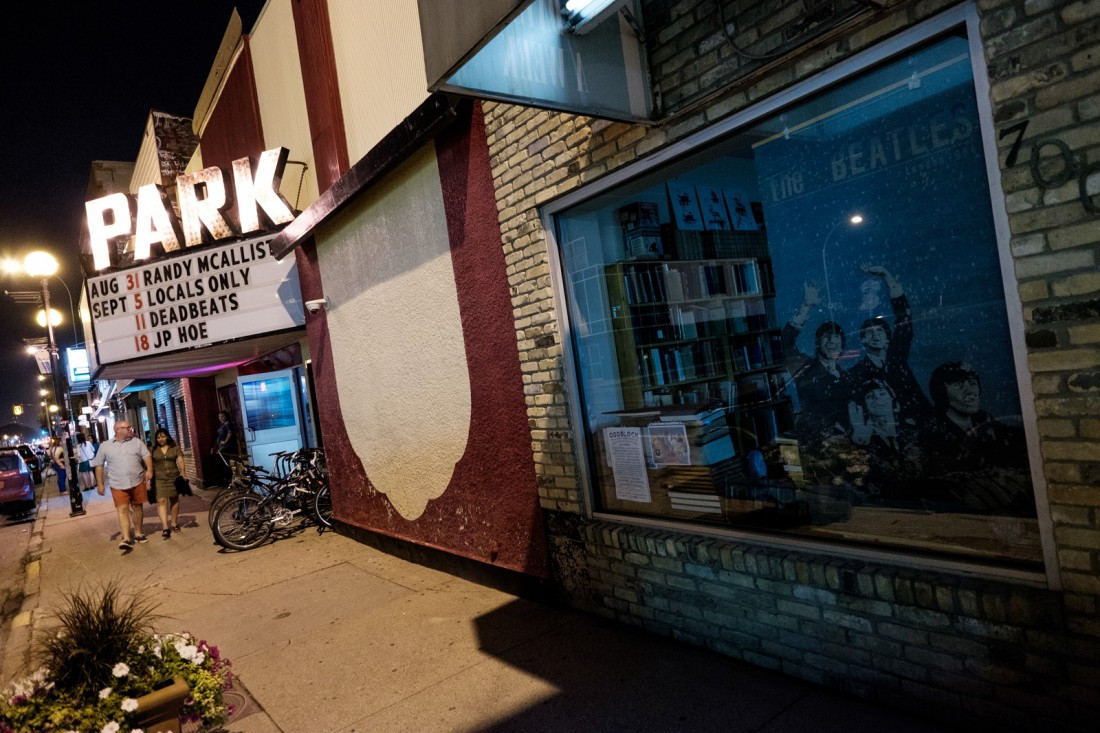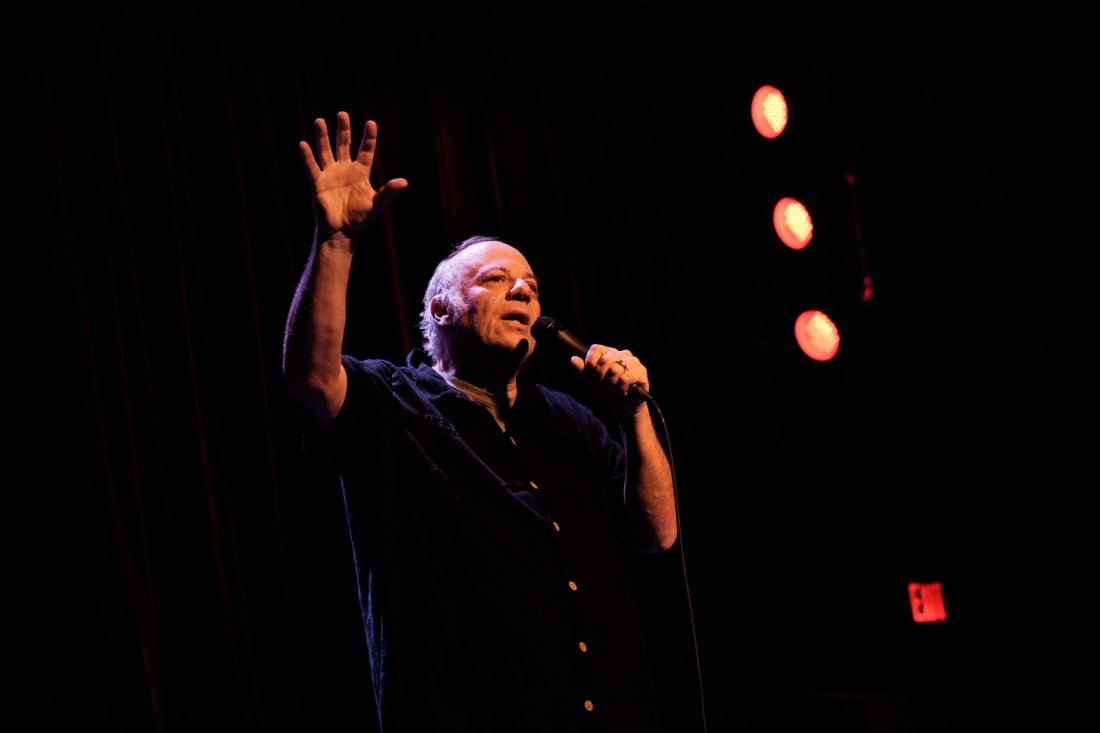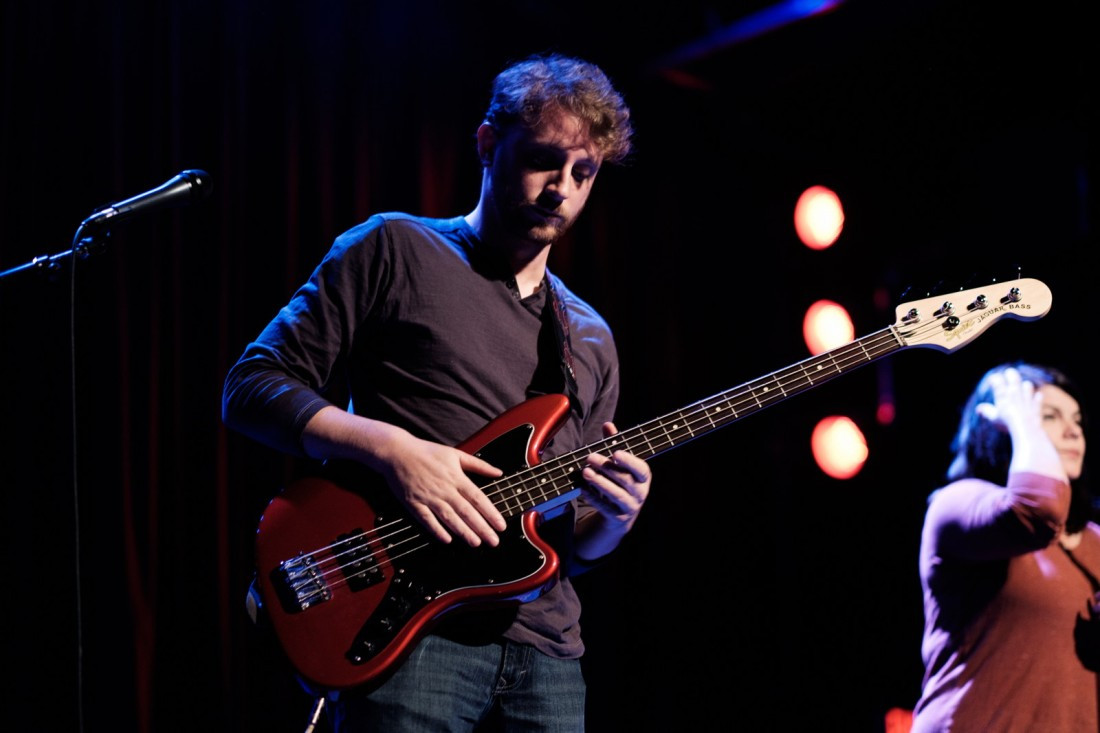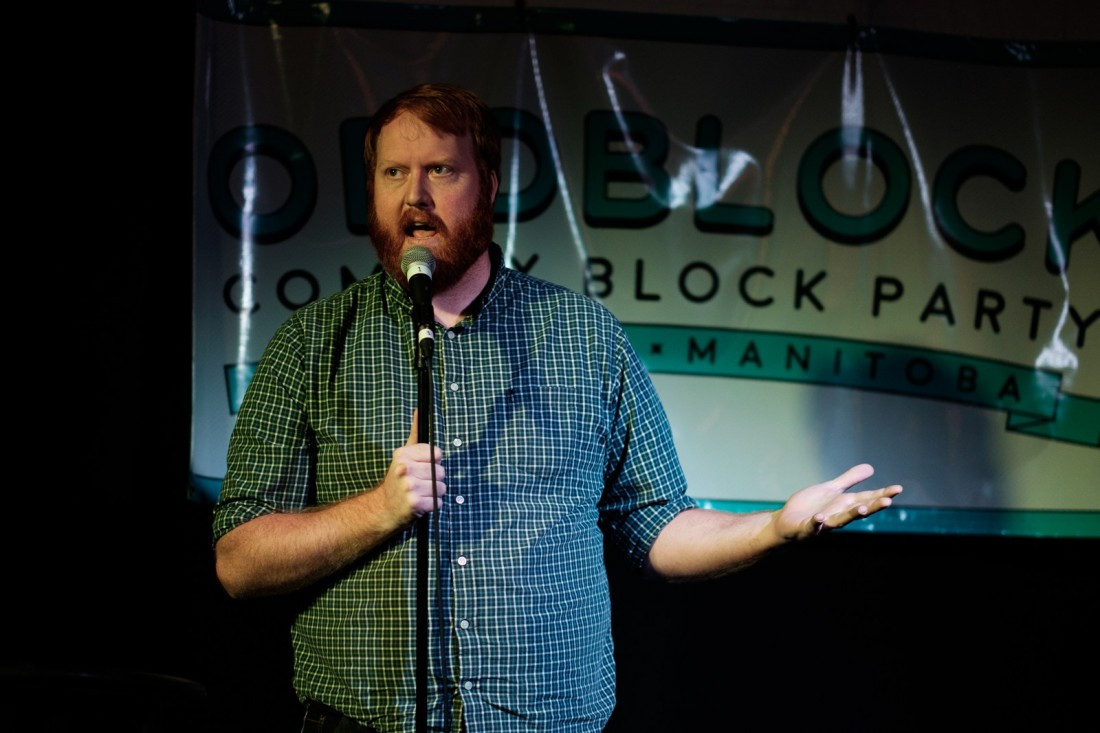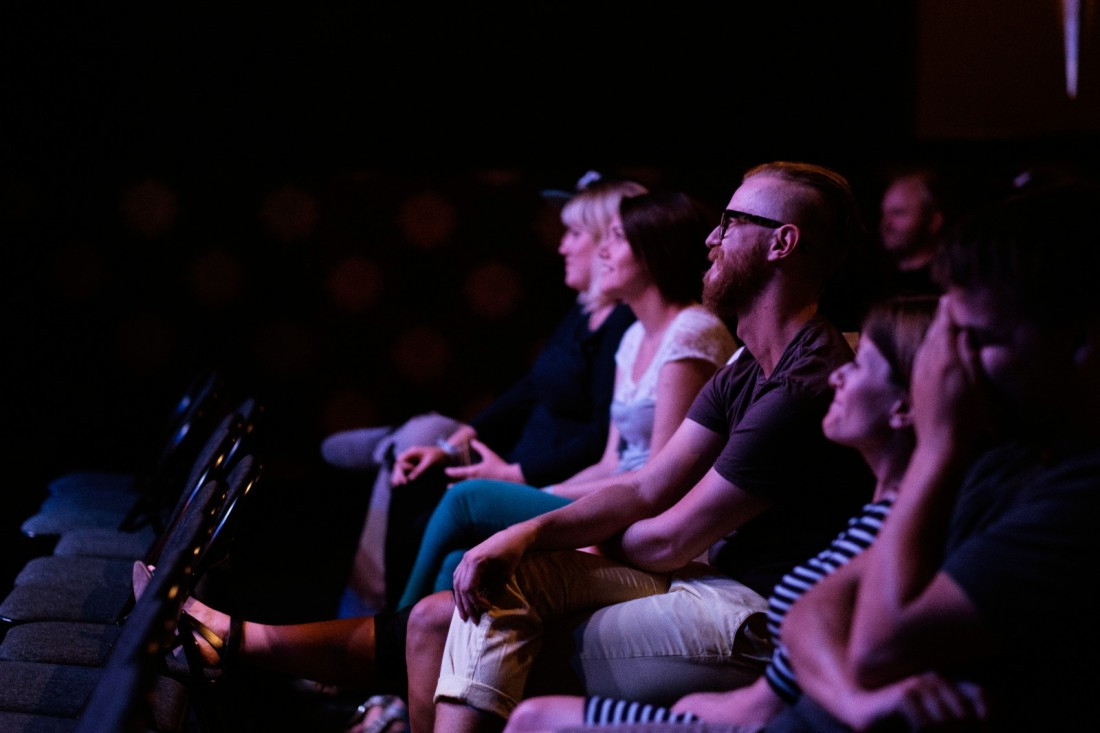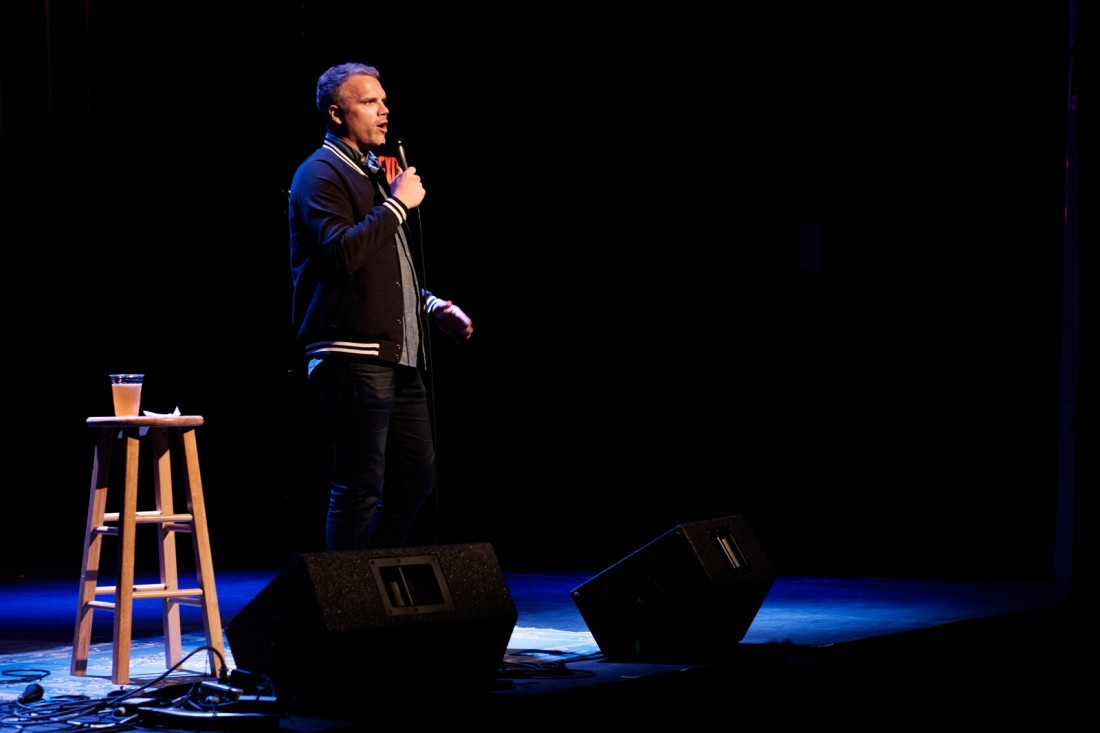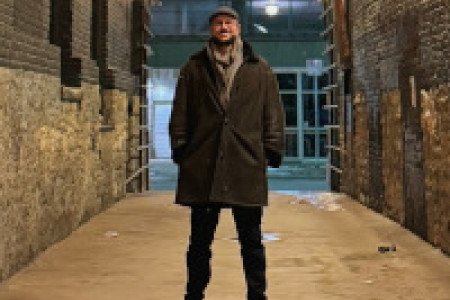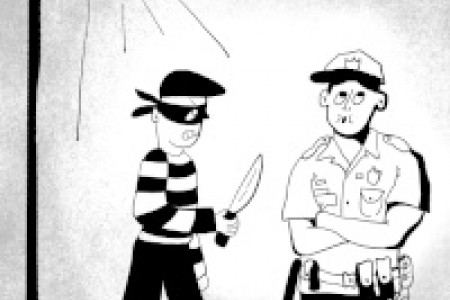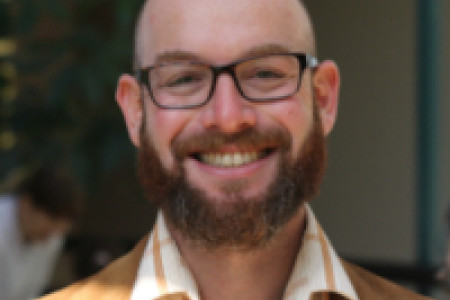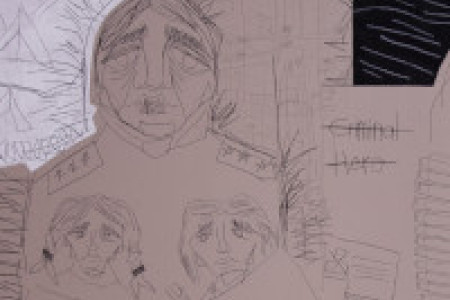Winnipeg’s comedy renaissance
Local comedians and audiences are shtickin’ together
Winnipeg is known for a lot of things. Well, maybe a small handful, most of them weather-related, and comedy hasn’t always been one of them.
Yet Winnipeg is currently several years deep into a bona fide comedy renaissance. While Rumor’s Comedy Club has long been a staple for comics visiting the city, a recent explosion of open mic nights and new performance opportunities has turned Winnipeg into a legitimate comedy town.

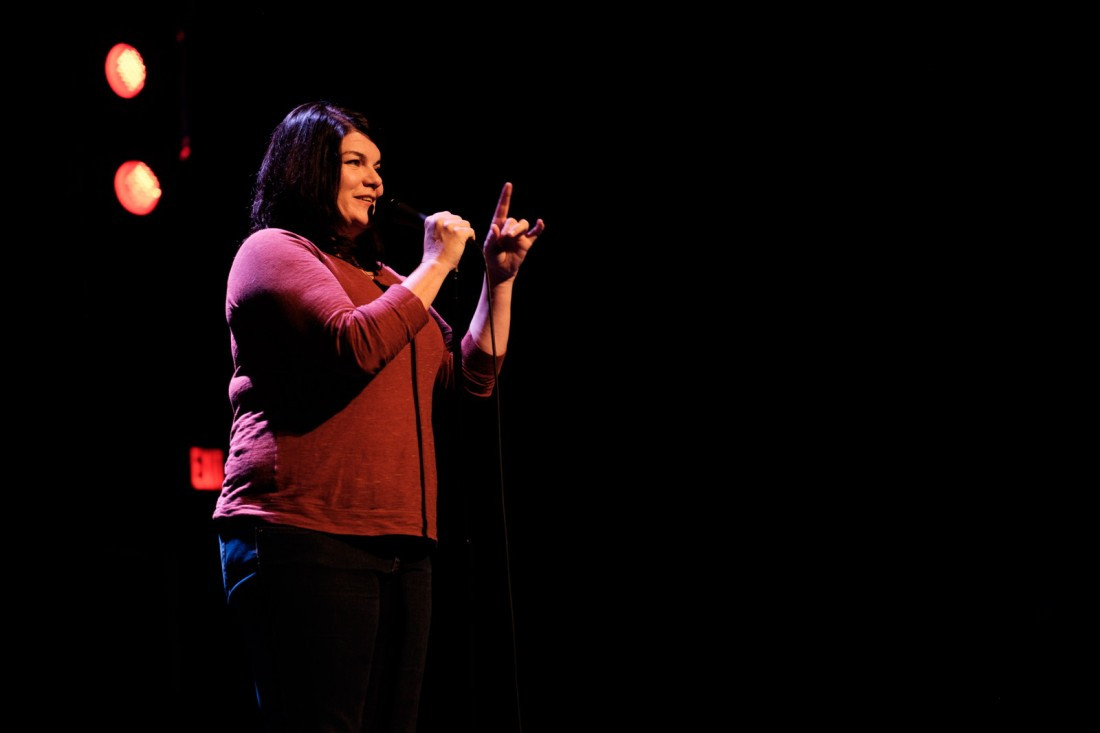
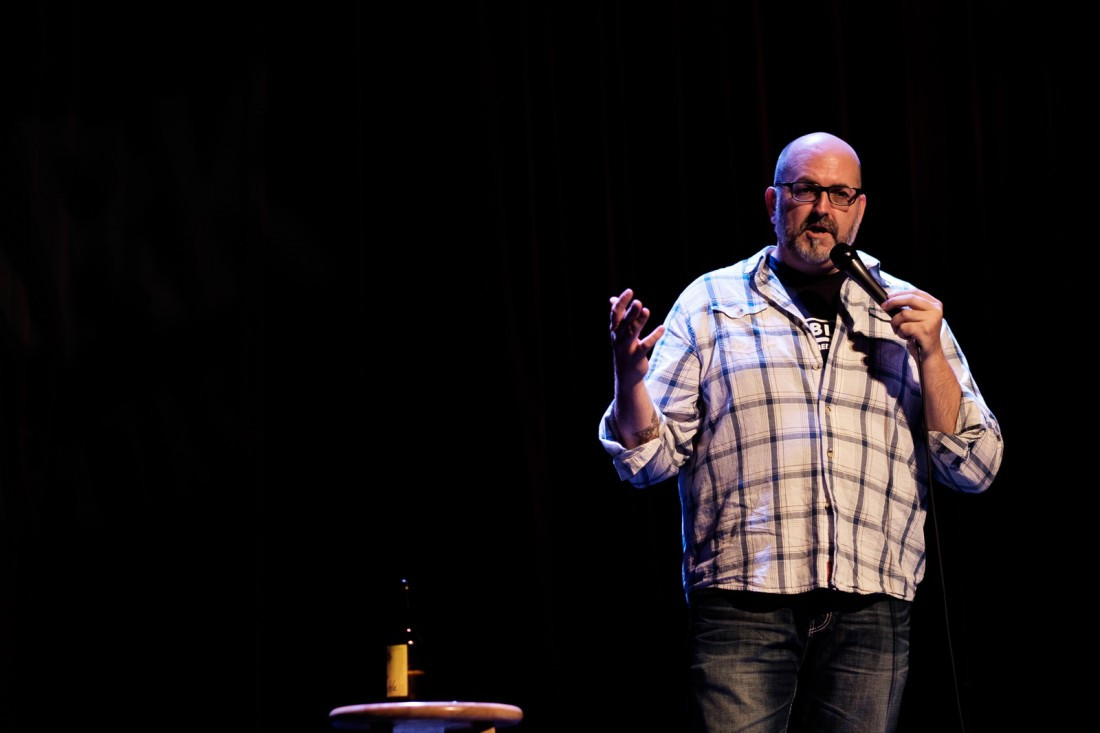
The weekend of Aug. 27 to 30 marked the first ever Oddblock festival. Billed as “Winnipeg’s Comedy Block Party”, the festival spanned several venues in the South Osborne neighborhood, all within walking distance.
Oddblock’s success is the fruit of a recent local boom: comedians performed small shows in non-traditional venues like Vera Pizzeria and Park Alleys, with gala shows happening at The Park Theatre. Local comics performed alongside touring comedians from across the continent, including such well-respected talents as Ron Lynch, Eddie Pepitone, James Adomian and Rhea Butcher.
John B. Duff, a stand-up comedian and the co-founder of Oddblock, has been doing comedy since 2004. He describes the scene at that time as “virtually non-existent.”
“The first year I started, I won (Rumor’s annual contest) Winnipeg’s Funniest Person with a Day Job,” Duff says. “There was only one room outside of Rumor’s at that time, and it was more of a booked show than an open mic. There was no opportunity, so I created it.”
Duff started doing weekly open mic nights at The Cavern and The King’s Head Pub and Eatery, both of which are still going strong. Tyler Schultz, the general manager of Rumor’s, says Duff’s open mics were essential to raising the profile of local comedy.
“We use all-local MCs at Rumor’s,” Schultz explains, “so I’d go out to the open mics and scout anyone I thought would be a good fit for our room. When I started at Rumor’s (in 2007), we’d get 30 or 40 people entering Winnipeg’s Funniest Person with a Day Job. This year we had 80. The boom has been very advantageous for us.”
In addition to the many open mic nights, The Park Theatre has also become one of Winnipeg’s premier comedy venues. Apart from bringing in touring comics like Jen Kirkman, Todd Barry and Hari Kondabolu, The Park’s regular comedy showcases have become a platform to expose audiences to some of the city’s best comedians.
Kevin Mozdzen, who books talent for The Park Theatre (and co-founded Oddblock with Duff) feels the venue has been able to carve out its own place in the scene separate from the comedy club model of Rumor’s.
“It’s been our blessing and our hardship,” Mozdzen says. “People don’t necessarily think, ‘I’m going to The Park Theatre to see some comedy.’ So we have to sell individual shows on the integrity of that specific performer, whether it’s someone local or a touring comic.”
Mozdzen says that same approach benefited Oddblock in differentiating itself from the already established Winnipeg Comedy Festival.
“What the Winnipeg Comedy Festival does is great, but it’s a very specific thing. So we tried to do the opposite. Instead of putting comedians into huge venues, we put them into every little nook and cranny we could find. Instead of spanning the whole city, we put it all in one area so it’s really condensed.”
“It’s a much different vibe,” Mozdzen says, “being able to bounce from one show to another, seeing the comics you just saw at a gala walking down the street to their next show.”
Matt Nightingale, a local stand-up comic and member of the sketch troupe H.U.N.K.S., says that Oddblock provided an “amazing” opportunity for local performers.
“I had a blast,” Nightingale says. “I got to really spread my wings. It lent so much credibility to the local scene, having us enmeshed with the out-of-town headliners rather than having us quarantined to our own little charity show.”
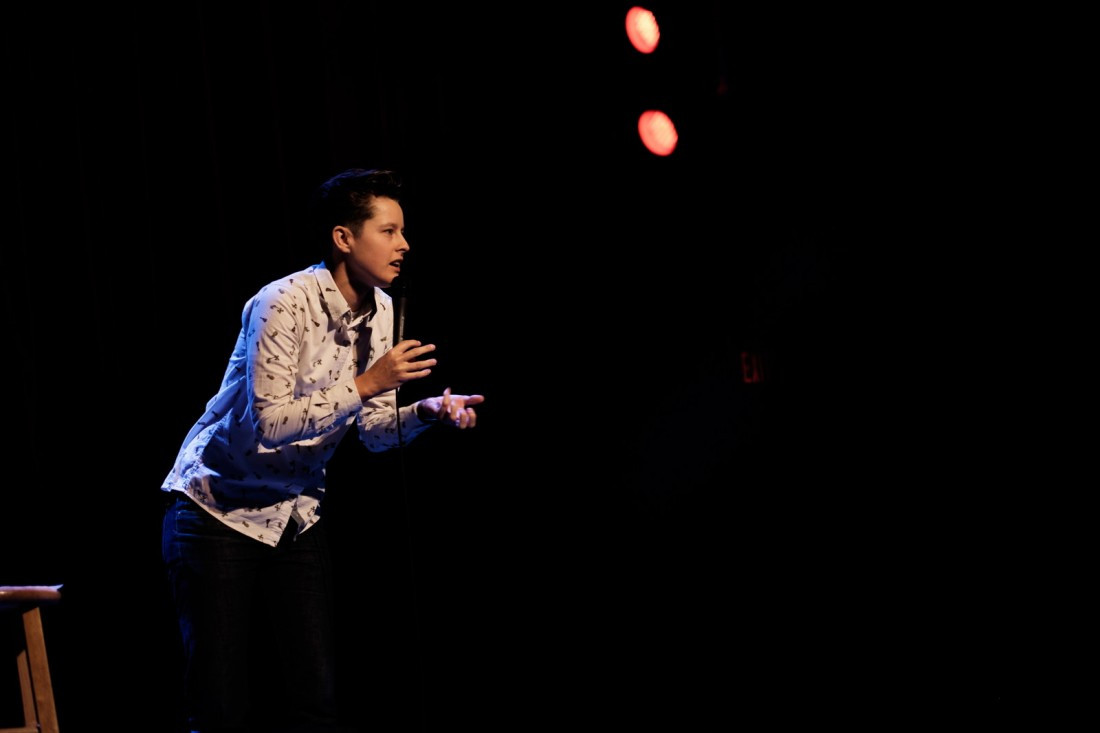
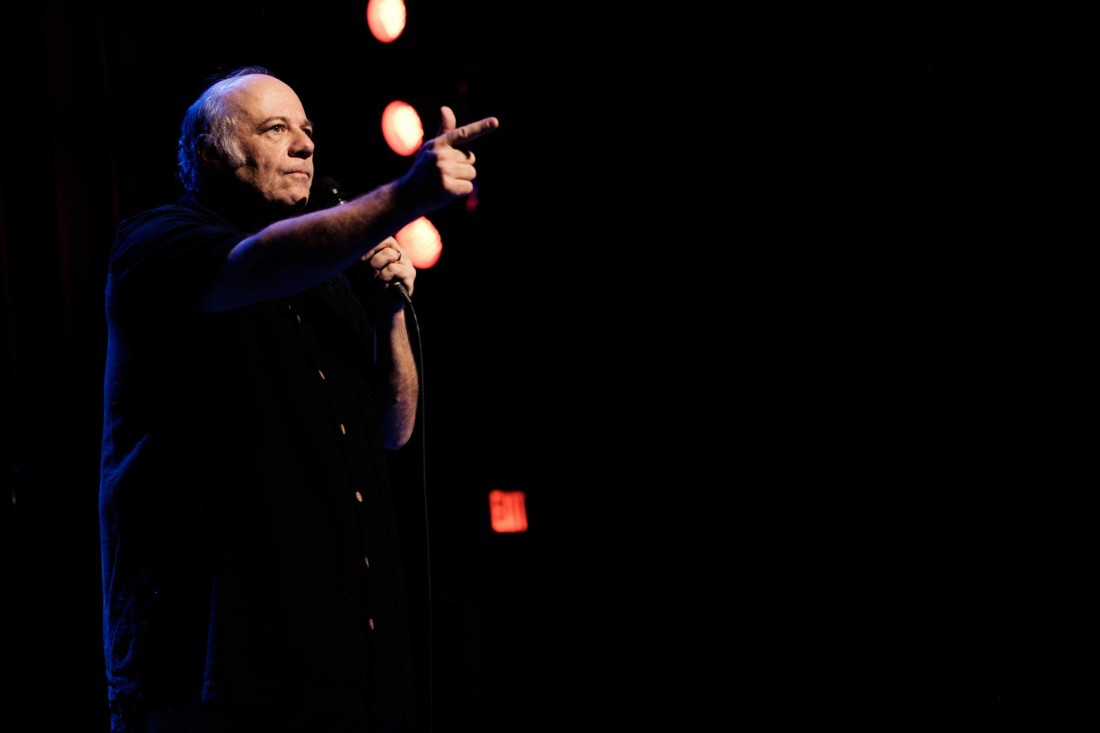
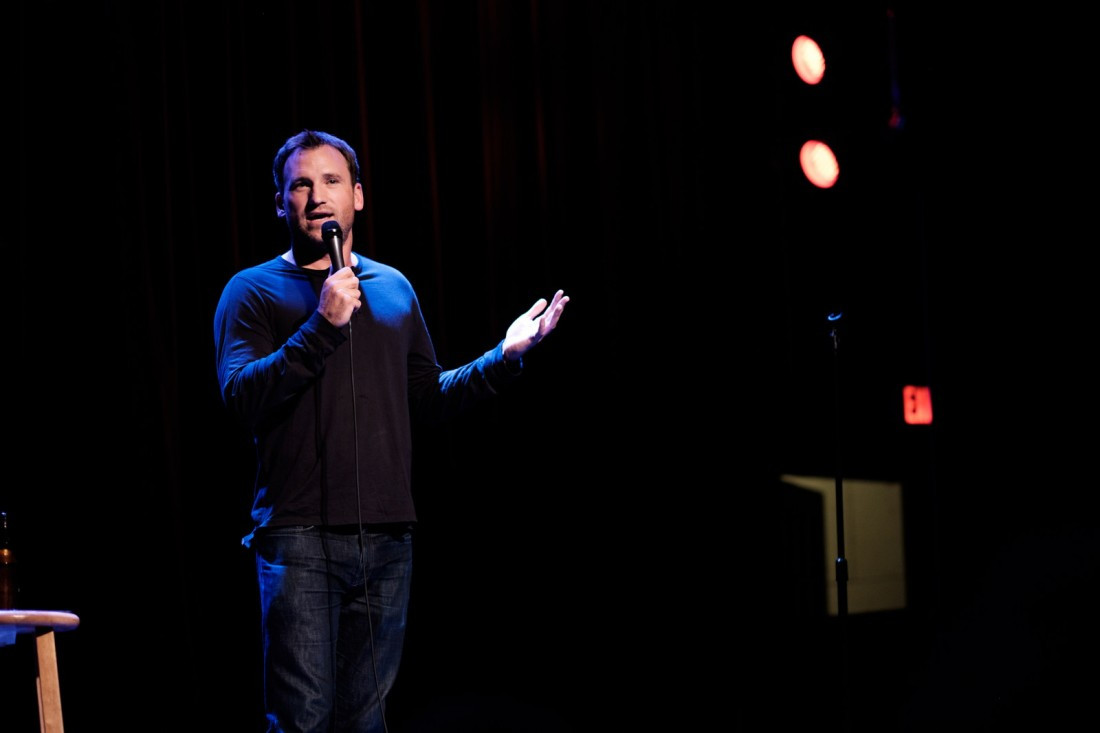
Dana Smith, another stand-up comic and member of H.U.N.K.S., says the Winnipeg Fringe Theatre Festival provides similar opportunities for sketch performers.
“Fringe reaches a way wider scope of people,” Smith explains. “There are a lot of people who come to comedy, who you see again and again. Which is awesome. But Fringe is important because you reach those people who just go to Fringe.”
Despite all the new opportunities springing up, doing comedy in Winnipeg is far from easy.
“I think if you’re getting into comedy because you think it’s going to make you money, or you have some kind of fast track because the city is so rich and fertile comedy-wise, you’re getting into it for the wrong reasons,” Duff says. “Make sure you’re doing it because you love it, and make sure you have a full-time job.”
Many of Winnipeg’s most successful comics move to Toronto to find more paying gigs. Winnipeg-born comic Chantel Marostica filmed her special Keep it Going at The Park Theatre in 2013, making the move soon after.
“Winnipeg just adored me,” Marostica says, “but I did everything I could do there, so I had to move on. I left for more opportunities and stage time, but the scene in Winnipeg is finally growing big enough to keep talent in the city. People need to keep supporting local comedy so it keeps growing to match the talent. Winnipeggers have no idea what they miss out on by not nurturing the huge talents in the city.”
Aisha Alfa, another Winnipegger who made the jump to Toronto, says the two cities are radically different in terms of comedy.
“There are a gazillion shows (in Toronto) and so many comedians,” Alfa says. “You’ll be on stage with some of the best comedians in the country at a great venue and getting paid, and the next show you do that same night will be with people you’ve never met, to an audience of only other comedians.”
“There’s a lot more range in Toronto,” Alfa admits, “whereas Winnipeg’s shows are generally really great. Winnipeg has an audience who is excited to be there and understands comedy, and venues that support comedy rather than allowing people to play VLTs while you try to do comedy without a mic in the corner.”
Dan Robertson is a 15-year stand-up veteran and native Winnipegger. He’s lived and performed comedy in many cities, including Toronto and Los Angeles. Robertson says it took coming back to Winnipeg to finally find acceptance for his deadpan delivery and uniquely conceptual comedy.
“You could do three shows a night there,” Robertson says of his 2005 move from Toronto to L.A. “But most of them were crazy comics and disinterested audiences. I was looking forward to performing at The Comedy Store. It was full of people who wanted to be comedians, and Paulie Shore told them that if they mopped enough they could have five minutes of stage time. And they’d go on at 1 a.m. to no audience, and they’d be devastated.”
“I have a pretty monotone delivery, and I was there at the peak of Dane Cook times. In L.A., they wanted a big loud comic. I heard a comic open with, ‘So, who’s on Myspace?’ and just got huge laughs. That’s when I realized that it’s not about being in a city with a large population. It’s about being in your scene, finding your audience.”
Jared Story, a local stand-up and host of The Park Theatre showcases, agrees that Winnipeg’s comedy scene is welcoming above all else.
“I’ve heard some people say it’s unwelcoming,” Story says. “I know how they get that idea because comics can be pretty honest and tough on each other. But everyone’s just trying to help each other. When you’re doing comedy in Toronto or New York, nobody has to give a shit about the scene because it’ll always be there. But in Winnipeg, everybody’s got to work together.”
Story says that tough love approach is done out of a love for the art form and believes he’s a better comic for it.
“You’re going to bomb, and you’ll face some criticism. I don’t think John Duff said one nice thing to me the first couple years. But he was giving me good advice by being critical. You have to have a thick skin, but it’s worth it.”
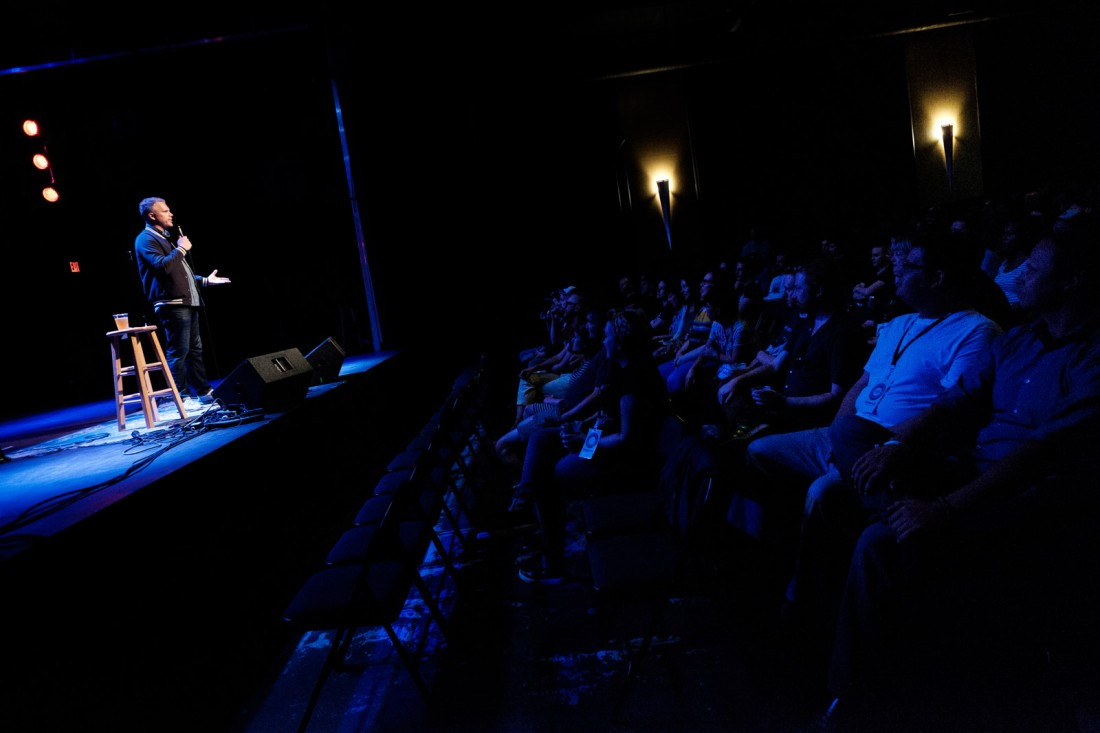
Published in Volume 70, Number 2 of The Uniter (September 17, 2015)


